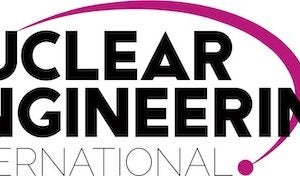According to sparesFinder.com research, 10-20% of spare parts held by companies are either surplus to demand on site or obsolete. Storing these parts can cost as much as 25% of the cost of the original component. Engineering companies with large spares inventories face a problem: what to do with parts which are costing them money. The ideal solution is to sell them to another company, but often parts simply get thrown away.
The opposite problem also exists: when maintenance and other work is being carried out, it is rare that all the spare parts necessary for the job are ready to hand.
“Engineering is easy, getting the spare parts is difficult,” said Brian Oxenham, formerly an engineer with the British nuclear navy. “We were constantly robbing spare parts from other submarines. The practice of engineers sharing spare parts with their friends has gone on for years.” Following his time in the navy, Oxenham moved to New Zealand where he worked as an engineering consultant for Pricewaterhouse Coopers. It was in New Zealand that the idea for sparesFinder.com came to him.
“We knew all companies now had computerised inventories. What we wanted to do was to bring order to the practice of swapping parts by using the Internet. Through sparesFinder you can extend your circle of friends to a worldwide network,” he said.
The sparesFinder service began operating in the southern hemisphere in 1998, and within six months a diverse range of companies were using it throughout Aus- tralasia. Transalta Power, the first company to subscribe, has not only renewed its annual subscription, but has also recommended that the service be adopted across its 12 sites in New Zealand. The service has been available in Europe since April and the database now lists several million parts.
Inventory savings By pooling resources through sparesFinder, companies can reduce the size of their spares inventories and save money. At the same time they gain access to a far larger pool of parts. Jan Hutchings, sparesFinder.com marketing director, says the service should be able to reduce a company’s surplus stock by 5-10 %.
“Where inventories run at high levels the savings can be huge,” he says. “As an example, a typical combined cycle gas turbine power station has an inventory of about $6 million. If the plant is carrying 15% surplus, this equates to $900 000 tied up in inventory which could be sold immediately.” For a company searching for a part, the service can help find it quickly and easily. A search of the entire sparesFinder.com database takes 90 seconds. Access, particularly to parts which are difficult to find, offers companies significant savings in reduced downtime.
SparesFinder.com is a horizontal supply chain. In this sense it differs from the traditional vertical chain of manufacturers, distributors and buyers. The company offers the service for an annual flat fee, which is pitched at a price that it claims would pay back in one use that prevents downtime.
“We provide software which gathers information on the spare parts inventory from all customer sites, and those of all other companies subscribing, and make it available at a central Infomix database,” said operations director David Stroud. “Software installation is easy, a Friday afternoon job. And it’s highly compatible, sitting alongside Enterprise Resources Planning systems as with the homespun inventory database of a single site. Once installed you can choose to search just your company’s own sites or all the sites on the database.” A grouping facility enables subscribers to belong to various groups with different restrictions on the data they make available to other members of those groups. For example, a private internal company group would show all stock holdings whereas an industry sector group would show only surplus holdings.
Once the required spare part is identified, subscribers receive the relevant contact phone and fax numbers of each potential vendor and the opportunity to email up to ten of them simultaneously. The subscriber contacts the part holder, agrees a price and arranges delivery independent of sparesFinder.com. Although the companies may be in competition, they are not generally competing at the spare parts level and the competition element has not so far proved to be a problem.
No nuclear companies yet subscribe. The very high engineering standards demanded in the nuclear industry means that companies are unlikely to regain the added value of their spare parts, should they find buyers beyond the nuclear community. However with the numbers of reactors throughout the world, it is likely that savings can be made should all these join the network.
And the pressure to reduce downtimes within the industry is greater now than ever.






